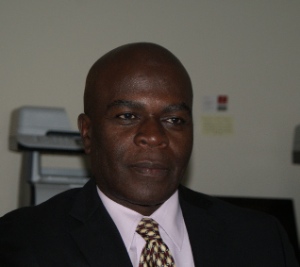 Common threats based on similar geography and vulnerabilities of small islands, has been a major influence on the increased cooperation between the Caribbean and Pacific Regions.
Common threats based on similar geography and vulnerabilities of small islands, has been a major influence on the increased cooperation between the Caribbean and Pacific Regions.
Two of the major players in this developing relationship are SOPAC, a division of SPC, and CDEMA (Caribbean Disaster Emergency Management Agency).
The Executive Director of CDMEA, Jeremy Collymore has been instrumental in fostering the exchanges between the two regions. that have led to a growing recognition of the range of learning capabilities, and practices for improving effective disaster prevention and management at the national level.
He was recently in Auckland to address the 3rd Session of Pacific Platform for Disaster Risk Management, a meeting organized by SOPAC and ISDR.
Mr. Collymore told the 200 participants at the meeting that small island developing countries, like those in the Pacific and Caribbean, are widely acknowledged to be among the most likely to experience a range of natural disasters, including hurricanes, floods, landslides, and volcanic eruptions, as well as being disproportionately suffering by the adverse impacts of climate change.
Climate change is likely to impact upon the small island developing countries resulting from disasters, reflected in the increasing frequency and severity of extreme weather events. This means there is a need for increased preparedness and response as well as mitigation capabilities within the regions.
“Three quarters of the population of these countries are estimated to live in risk areas, and one third of them live in areas highly exposed to hazards such as low-lying coastal areas.”
He said that the ability of governments to deal with these predictable threats is uneven.
“All of them acknowledge their responsibility to meet the challenges of assisting and protecting victims, but seldom commit the needed resources to meet the actions needed to fulfill this responsibility. There exists a gap between the will and the wallet,” said Mr. Collymore.
He said that countries in the two regions often have entirely different impacts from damage caused by the same type magnitude of storms or earthquakes. This is because of lack of coordination, lack of communications, poor citizen participation and poor awareness from those responding to the event.
“This lack of capacity and capability gap of island nations in responding to climate changes and disaster risks, has been a key factor in the establishment of regional agencies such as CDEMA and SOPAC.”
Mr. Collymore said that the increasing frequency and magnitude of recent events require urgent action to address fundamental weaknesses with disaster response and management mechanisms, both nationally and locally.
He said that the main issue is that governments in our two regions do not perform as well as they could in disaster management.
“It is this lack of political will to devote national resources to disaster management and particularly to disaster prevention - despite commitments to the latter.
“The message,” he said, “is that the contingency planning systems must be capable of dealing with diversity, variability, and extreme nature of the threats we are likely to face.”
Mr. Collymore said, “We (CDEMA) share the vision of SOPAC on the need to work harder to protect communities from the potential dislocation from threats of all kinds especially those related to climate change. To this end CDEMA is resolved to continuing and deepening its cooperation.” with the Pacific region”
Caption: Jeremy Collymore





